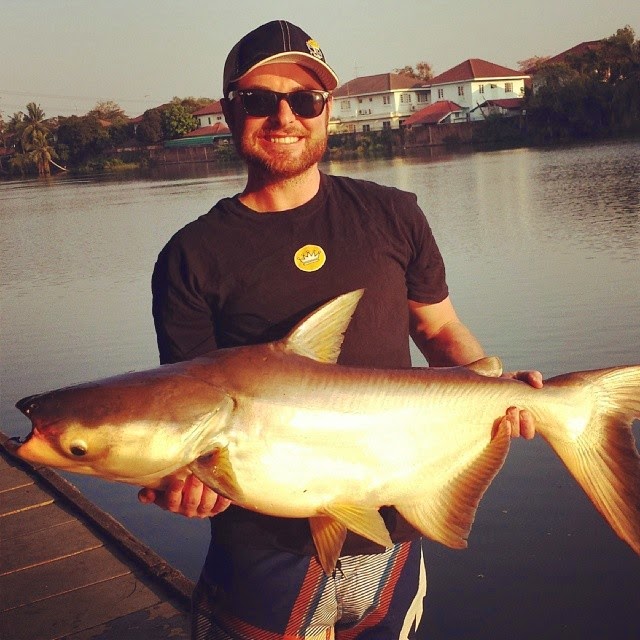David Rawding
Age 28
Cooper Landing, Alaska
BA in English from the University of New Hampshire (UNH) and an MFA in Fiction from Southern New Hampshire University (SNHU)
The Writer
Do you have a specific writing style?
Yes, I do. During my undergrad at UNH, I took as many poetry workshops as I could. I feel like I often rely on poetic imagery to help me tell a story. As far as plot goes, I usually drop my characters into situations that I would never want to be in and see how they react. I recommend the same to my Creative Writing students when I am given the opportunity to teach as an adjunct professor.
What is your ultimate goal as a writer?
I want to be a published novelist. I have one finished manuscript that I’m pitching to agents/publishers now, a New England-based Mystery/Crime novel titled, “Taking on Water,” and I’m working on two more novels that will lean toward literary fiction. My goal as a writer is to publish these and many more novels. I imagine that I will keep writing books until I am physically unable to type, write, or talk.
What is your greatest challenge as a writer?
Getting a publishing contract for my novel is the current challenge for me. I don’t imagine I am alone in this pursuit. Rejections don’t bother me one bit. I’ve had plenty of challenges thrown before me and I’ve blasted through each one. Just takes time, commitment, and patience. I’m a fisherman, so I’m inherently built for this kind of challenge.
The Work
Tell us about your work in Crack the Spine.
My story, “The Climber’s Crux,” is about a rock climber, living in Denver, who battles a disease and a climbing route. He decides to take both on (naked) one moon-lit night.
What inspired “The Climber’s Crux?”
I got back into rock climbing while living in Denver and I was working as a valet at a hospital, so the story idea was very much based off what I saw on a regular basis at the time: cliff faces and cancer patients.
How long did it take you to complete this piece?
The piece actually took me several years to write—which is unusual for me—I normally work very fast. I’m very proud of how it finally turned out. I want to thank my writer-friend Sarah for being a reader for this story. I also want to thank Crack the Spine Literary Magazine for publishing this story. I was rejected by Crack the Spine (CTS) several times before this, but I knew that one of my stories would eventually be CTS caliber.
Tell us about another project you have published or are currently working on.
I’m currently querying agents and small publishers to try and publish my Mystery/Crime novel, Taking on Water, and working on two additional literary fiction manuscripts as well. Additionally, the apparel company A Big Day has recently taken me on as a travel writer. The blog is called A Big Day Adventures with David Rawding. Half of the year I work in Alaska as a drift boat fly-fishing guide (where adventure is built into the job description) and the other half I travel abroad with a backpack and a fly rod. I travel in search of A Big Day and then I log the ensuing stories and media.
The Methods
How often do you write?
I write several times a week usually for four to eight hours.
Where do you write?
Since I move so often or am backpacking, I never have a consistent place to write. I just plop my cheap laptop down on a bed, table, or my lap and hit the keys.
What time of day or night makes you most productive as a writer?
I function best in the morning with a cup of coffee.
What is your usual starting point for a piece? (Is your work character driven, plot driven, inspired by locations, etc?)
I usually write about characters that are put into interesting or bizarre situations in real settings that are familiar to me. This usually provides enough drama and I’m always fascinated to see how my characters react. I think that their reactions can reveal important universal truths about our own humanity.
What is your best piece of advice on how to stay sane as a writer?
I think that having a writing community of literary citizens around you is the best way to be a successful contemporary writer. Luckily, I have a supportive family and an awesome community of fellow writers that share in the struggles and the successes.
The Madness
What is your favorite book?
My favorite book right now is the most recent one I’ve read, “The Animal Dialogues,” by Craig Childs. This fantastic nonfiction read is for anyone who enjoys the natural world and good story telling.
What makes you laugh?
Practical jokes and physical comedy make me laugh the most. I love the moment when you watch or lead a friend into a trap designed to scare them. I also like when a comedian, like the late, great actor Chris Farley, barrels through the walls or tables of a set. The comedian Eric Andre makes me laugh all day.
What is the most beautiful thing you’ve ever seen?
The most beautiful thing I’ve ever seen would have to be this two foot long rainbow trout I caught while fishing on the glacial turquoise waters of the Kenai River in Alaska. It was mid-summer and I was fly-fishing along a gravel bar in the middle of a wildlife refuge. The area is thick with trees and animals (including lumbering grizzlies and massive moose). Mountains with snow-packed avalanche lines stab the sky in the background. All you can hear is the fly line whistling past your ear and the steady rush of the current in the back channel. I hooked, fought, and landed this gorgeous fish and as I stood staring at the green, red, and silver scales of the spotted rainbow trout cradled in my wet hands I thought, Damn, I’m a lucky human being. As with all of the trout I catch, I let that one swim away so someone else might get the chance to see that beauty another day.
Rain or Sunshine?
Rain then sunshine. You might get a rainbow out of the deal.
Beach or Mountains?
If you travel to the right places you can get both.
Cats or Dogs?
I’m a dog guy. Pitt bulls are my favorite, I just move too much to own one, unfortunately. One day though…
Additional Reading on David

